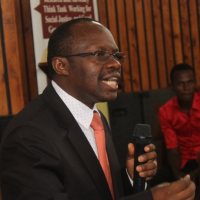Initial reflections on the Pact for the Future
Our Director of Engagement is back from New York and shares her thoughts from the latest UN sustainability summit
You are using an outdated browser. Please upgrade your browser to improve your experience and security.
Blessed with fertile soil, regular rainfall, and strong year-round sunlight, Uganda has the potential to become a green economic powerhouse, powered by organic agriculture and clean energy. Two thirds of Ugandans work in agriculture, and the country has already made real progress in transforming conventional agricultural production into a world-leading organic farming system – creating jobs, delivering export income, and protecting the environment in the process.
And that’s just the start. Research has found that green economic policies could boost GDP by as much as 10%, delivering an extra US$3.4 billion in growth by 2020, all while creating 4 million new jobs and reducing carbon emissions by almost a third.
But there is still much to be done. Despite impressive economic growth in recent years, Uganda remains one of the 20 poorest countries in the world, and has struggled to tackle issues of sanitation, energy access, and malnutrition.
Driving the green transition is our partner in Uganda, the Advocates Coalition for Development and Environment (ACODE). An independent public policy, research, and advocacy think tank, ACODE is the hub for the GEC’s work in the region, helping to

“ACODE is proud to be the GEC partner and bring to the coalition its high-level convening power enjoyed in Uganda and indeed the entire of East Africa. Together we shall make Uganda a regional model on the Green Economy.”